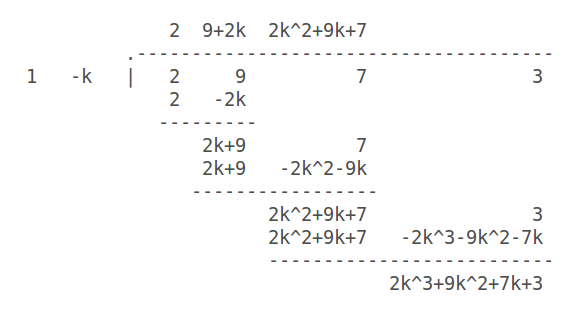The remainder when #2x^3 + 9x^2 + 7x + 3# is divided by x - k is 9, how do you find k?
1 Answer
The remainder of dividing
Explanation:
If you attempt to divide

So if the remainder is
#2k^3+9k^2+7k+3 = 9#
Subtract
#2k^3+9k^2+7k-6 = 0#
By the rational root theorem, any rational roots of this cubic will be of the form
That means that the possible rational roots are:
#+-1/2# ,#+-1# ,#+-3/2# ,#+-2# ,#+-3# ,#+-6#
Let's try the first one:
#f(1/2) = 1/4+9/4+7/2-6 = (1+9+14-24)/4 = 0#
so
Divide by
#2k^3+9k^2+7k-6 = (2k-1)(k^2+5k+6) = (2k-1)(k+2)(k+3)#
So the possible solutions are:

